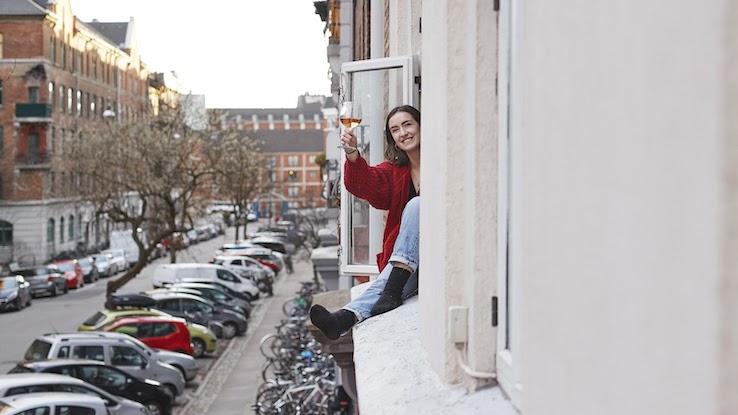
Remember back in March and April when we thought we’d be dealing with another month, maybe two, of sheltering in place, of working from home, of sticking only to quick trips out to buy food and attend essential appointments? Now, as we reflect back on those times — perhaps even with a tinge of longing for the days before we were fully aware of how daunting and deadly the novel coronavirus is — many of us may find ourselves searching for a silver lining. That’s not at all to trivialize the lives lost or the economic impact of the virus, but to serve as a coping mechanism to help us process the utter unprecedented-ness of it all. And focusing on what we’ve gained while honoring what we’ve lost may actually help us weather the COVID storm.
The pandemic has brought the world to an unparalleled standstill, but it’s also brought us together in ways we couldn’t have imagined. We’ve perfected staying connected, and we’ve (hopefully) developed a greater appreciation for keeping each other safe and helping each other out. So what will we carry into the future once the pandemic subsides, a vaccine arrives and we adapt to another new normal of a post-COVID (or healthily-coexisting-with-COVID) world? These are some of the most important lessons from sheltering in place that’ll continue to serve us after we’ve rounded the bend of this global turning point.
You Don’t Have to Drop the Xbox Controller Just Yet
In a society that’s as duty-bound and governed by productivity apps and lifehacks as the one we’re living in, many of us have become conditioned to feel guilty about indulging in hobbies — even when we’re cocooned at home with nothing much to do. We feel ashamed about pausing for a moment to enjoy activities we deem frivolous, things like video game marathons, reading (which is actually never, ever frivolous) and even just plain old time on the couch doing nothing but listening to music. It’s normal to feel like we constantly need to be getting something done. But the pandemic invited us — it practically required us, in some cases — to escape into virtual worlds and imaginary lives, and doing so turns out to have some surprising benefits for our mental health.
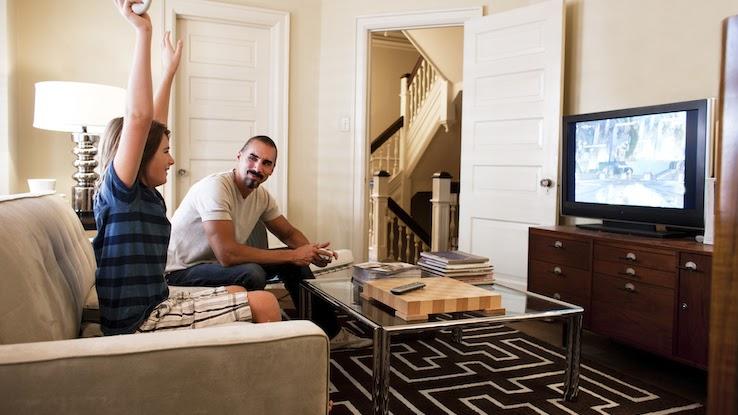
The purposeful distraction that escapism offers helps people “cope with emotions that are strong and uncomfortable,” and it “gives [those] emotions some time to decrease in intensity, making [them] easier to manage,” notes psychology professor Matthew Tull, PhD. And it’s no secret that we’re feeling some strong and uncomfortable emotions as a result of the pandemic. Even the Centers for Disease Control and Prevention (CDC) has acknowledged the growing intensity of fear, anxiety and loneliness during this time, and it recommends “[taking] breaks from watching, reading or listening to news stories” to preserve our mental health.
It’s been near-impossible to escape news about how the pandemic is affecting the world — and, to a degree, we need to keep up with current events to stay aware of important developments, particularly to preserve our safety. But taking quick moments for private reverie, for indulging in a world that’s definitely not this one, gives us the opportunity to pause and shift our focus away from all the negative. Periods of escapism can better equip us to deal with obstacles we face in real life. Our brains need breaks sometimes, and slipping away into an engaging story or an otherworldly game presents the perfect opportunity to shed our worries momentarily and recalibrate. So go ahead and water your flowers in New Horizons or idly roam the desert in Journey — it really will help you decompress.
Baking Is Seriously Therapeutic
Yes, the humble loaf did attain full-on meme status because of the pandemic, but there’s something to be said for just how universal the act of baking bread (and cookies and muffins and pies) became for all of us. We collectively found solace in the simple act, in the meditative kneading and the quiet waiting for our yeast to bloom and our crumb to pillow up. Baking gave us a sense of accomplishment that we desperately needed in a time when everything felt so up in the air and so no-end-in-sight. So we fabricated our own ends in sight: follow a process, get a delicious reward and enjoy the satisfaction of seeing a task through to completion.
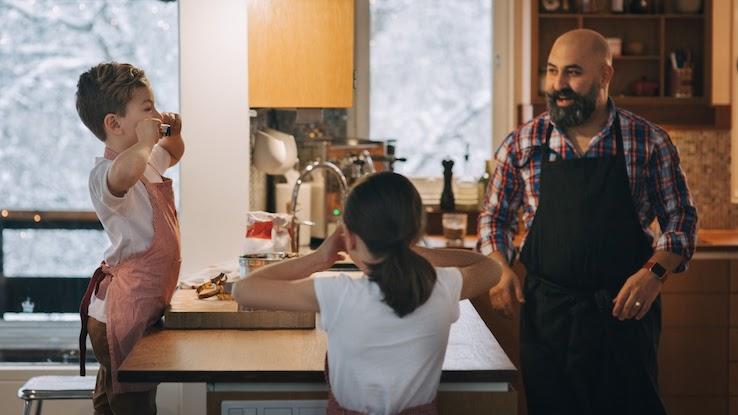
But even more gratifying than slathering butter on a fresh-from-the-oven dinner roll is the knowledge we gained that we can take care of ourselves. In an era of convenience cuisine, many of us were keeping our kitchens at baguette’s length, mostly as a function of our busy lives. But with extra time on our hands and the desire to feel some sort of fulfillment, we returned to the most basic act of self-care: feeding ourselves.
And self-care is doubly important during a pandemic: The CDC notes that “self-care during an emergency will help your long-term healing” because it’s a form of stress-management we can apply whenever we need a boost. Making time for self-care — “any activity that we do deliberately in order to take care of our mental, emotional and physical health,” which, yes, includes baking — has the potential to alleviate some of the psychological distress the pandemic is stirring up. Knowing that we have an option, that we can take action to help ourselves when things feel out of control, is extra-comforting right now.
Plus, eating carbs naturally stimulates serotonin production in our brains — and who couldn’t use a little more of “the happy chemical” during a time like this?
Taking Action Is Vital — and Empowering
While the COVID-19 pandemic was raging, many of us became aware of another pandemic: the racial injustices that have been harming and taking the lives of Black people in the United States for decades. The murder of George Floyd at the hands of Minneapolis police officers laid bare the realities of police brutality and other forms of oppression and violence that people of color are subjected to on a daily basis in this country. Spurred by Floyd’s death — along with those of Breonna Taylor, Rayshard Brooks, David McAtee, Daniel Prude and hundreds of others police have murdered since the pandemic started — people began protesting the killings and the systems that perpetuate racial injustice. Around the country, millions of people, led by the Black Lives Matter movement, took up the necessary work of calling out injustice and demanding lasting policy changes.
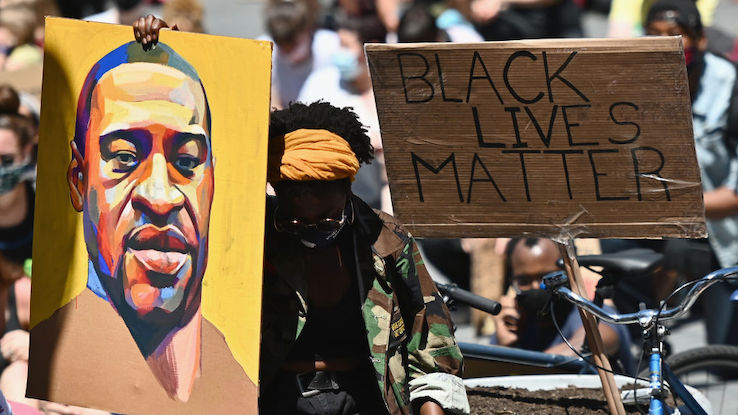
We were forced to confront the fact that racial inequality — another public health crisis, one which, like COVID-19, is disproportionately killing Black Americans — has been taking place in this country since long before the coronavirus arrived. And in doing so, we’ve learned not only more about these shocking realities but also about the importance of taking action and standing up for justice when it comes to demanding rights for people who need them most. The situations and conditions that led to the protests are disturbing and traumatic and terrifying. But in the face of this, many of us have risen up and stood together, finding empowerment in each other and in the absolute necessity of pursuing a solution.
People have been both working against and working toward things that are much greater than themselves, demanding radical change in the process. And along with the bigger-picture importance of sparking that change, protesting is helping us in other compelling ways. “Protesting [itself] is therapeutic,” Dr. Bandy X. Lee, Yale University psychiatrist and specialist in violence prevention programs, told Salon. “It is acting on hope and it is also, in the case of oppression, therapeutic… You can transform negative experiences into positive ones by making a difference in the world.” Another Yale psychiatrist, Dr. David Reiss, notes that activism “serves to diffuse hopelessness, encourage optimism — and perhaps equally as important — support feelings of agency…to disrupt the negative vicious cycle of fear, frustration, anger [and] depression” that arise when we recognize how deeply ingrained injustice is in our society. Taking action and fighting for what’s right have the potential to help us individually and as a whole on many different levels. If we can get this much done during a pandemic, think of what we can accomplish by carrying the same energy into the future.
We’re More Resilient Than We Ever Would’ve Thought
Humans are adaptable creatures, but the coronavirus pandemic really threw down the gauntlet when it came to testing just how much we can juggle. From going months without hugging our loved ones to following shifting recommendations about keeping ourselves safe, we had to absorb and process, and then un-absorb and re-process, so many fluctuations that our heads were spinning. But what this has demonstrated is that, despite all the discouraging news floating around and despite the shelter-in-place fatigue we may be feeling, we’re stronger than we know. “The future looks brighter than you might think,” notes UW Medicine, and “most of us will probably be OK long-term,” according to mental health experts.
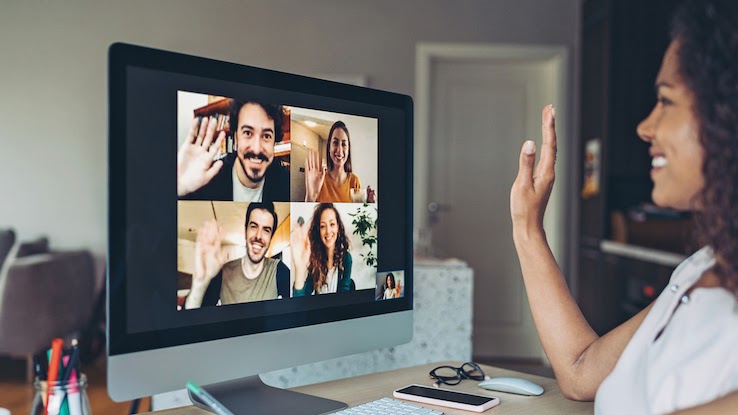
Just the sheer endurance the coronavirus pandemic turned out to have left many of us wondering if the negative emotions it’s causing will ever fade. The good news is that the majority of people will be able to process this type of trauma in a constructive way that won’t leave a long-term impact on mental health — in part because many of the activities we’ve been using as coping tools during this time are what facilitate resilience. Reaching out to loved ones, enjoying new hobbies, helping others and even talking to a therapist are all effective ways to cultivate resilience — “the ability to break and get back together” — and they’re what have helped us find ways to go on during such a trying time. It’s important to remember, too, that we can learn resilience. It’s an action, not a personality trait, so all of us can call on it when the need arises.
It’s reassuring to know that we can step up when we need to, even if we aren’t feeling that empowered in the moment. And that reassurance can carry us through the hard times, keeping us motivated to work through, bit by bit, what feels insurmountable. That’s pretty powerful, isn’t it?
Coming Together and Helping Is Our Specialty
Another thing we’ve realized while sheltering in place? That we might be apart, but we’re certainly not alone. From sewing and donating face masks to grabbing groceries for immunocompromised neighbors, we’ve figured out so many ways to stay connected by helping others. We’ve even created ways to have fun with it, like Zoom happy hours and group singalongs on our porches and balconies. And this conscientiousness, even across the chasm of social distance, may be doing more for our collective psyche than we might think.
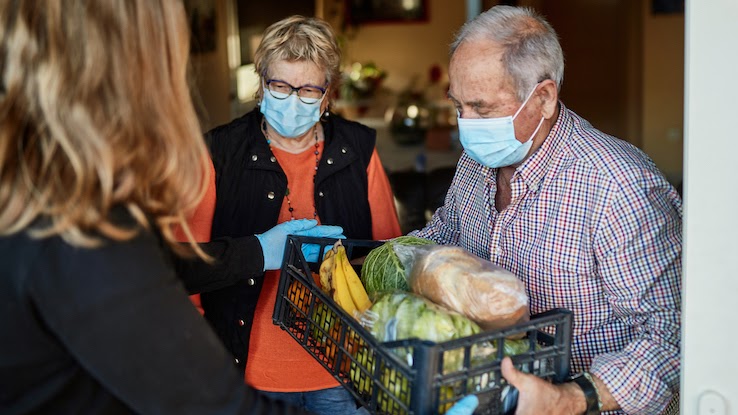
Yes, we’re focusing on a shared threat, but this has also spurred us to fully realize our capacity to take care of one another. People around the country working all types of jobs are stepping up to the plate, particularly in the face of a government that’s been largely absent when it comes to helping citizens weather this storm. And while there are tangible benefits to doing so — kids can eat because their bus drivers have volunteered to deliver meals, and people are surviving the virus thanks to the dedication and selflessness of frontline healthcare workers — we’re also learning just how important helping is for us, emotionally speaking.
There’s truth to the old adage that it’s better to give than to receive, even during a pandemic. That’s because being prosocial, which means acting in ways that help or benefit another person or group, “reinforces our sense of relatedness to others, thus helping meet our most basic psychological needs,” according to Dr. Marianna Pogosyan, a cultural psychologist. At our core, we need to help others if we fully want to thrive. Doing good feels good and does us good personally by boosting our well-being, combating depression and giving us a sense of meaning and purpose — all things we can benefit from immensely right now.
This world can seem so big, and we can feel so small in it, especially when it seems like tragedy waits around every corner. And it’s not hard to feel disconnected and confused in the midst of the great wide unknowns that the pandemic has dropped at our feet. But if there’s one thing we can be sure of, one thing to learn from this situation, it’s that our need for connection is a thread that ties every one of us to each other. It’s a reminder that our similarities make us who we are much more than our differences do. If we can remember to take care of ourselves and each other, we can make it to the other side just fine — together.






